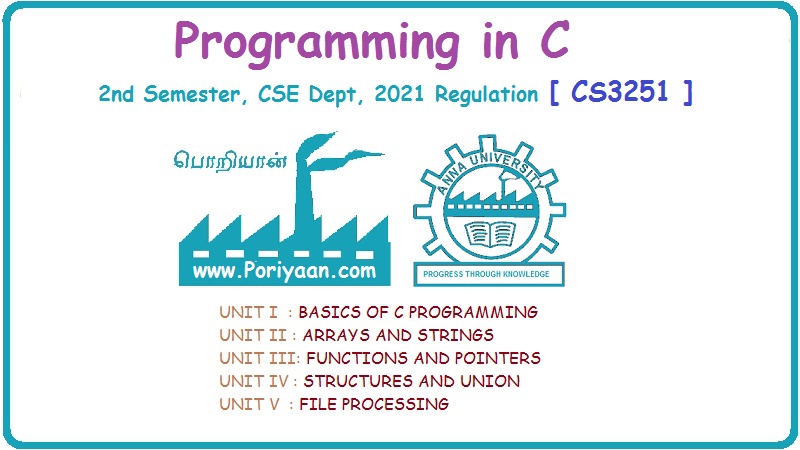Programming in C: Unit III (b): Pointers
Null Pointers
with Example C Programs
We have seen that a pointer variable is a pointer to some other variable of the same data type. However, in some cases we may prefer to have null pointer which is a special pointer that does not point to any value.
NULL
POINTERS
We
have seen that a pointer variable is a pointer to some other variable of the
same data type. However, in some cases we may prefer to have null pointer which
is a special pointer that does not point to any value. This means that a null
pointer does not point to any valid memory address. To declare a null pointer you may use the predefined
constant NULL, which is defined in several standard header files including <stdio.h>, <stdlib.h>, and <string.h>. After including any of
these files in your program, write
int *ptr = NULL;
You
can always check whether a given pointer variable stores address of some
variable or contains a NULL by writing:
if (ptr = = NULL)
{
Statement block;
}
You
may also initialize a pointer as a null pointer by using a constant 0, as shown
below.
int
ptr;
ptr
= 0;
Programming Tip:
It
is a logical error to dereference a null pointer.
This
is a valid statement in C, as NULL
which is a preprocessor macro typically has the value, or replacement text, o.
However, to avoid ambiguity it is always better to use NULL to declare a null pointer.
A
function that returns pointer values can return a null pointer when it is
unable to perform its task.
Null
pointers are used in situations where one of the pointers in the program points
to different locations at different times. In such situations it is always
better to set it to a null pointer when it doesn't point anywhere valid, and to
test to see if it's a null pointer before using it.
Note
A
run time error is generated if you try to dereference a null pointer.
Programming in C: Unit III (b): Pointers : Tag: : with Example C Programs - Null Pointers
Related Topics
Related Subjects
Programming in C
CS3251 2nd Semester CSE Dept 2021 | Regulation | 2nd Semester CSE Dept 2021 Regulation
